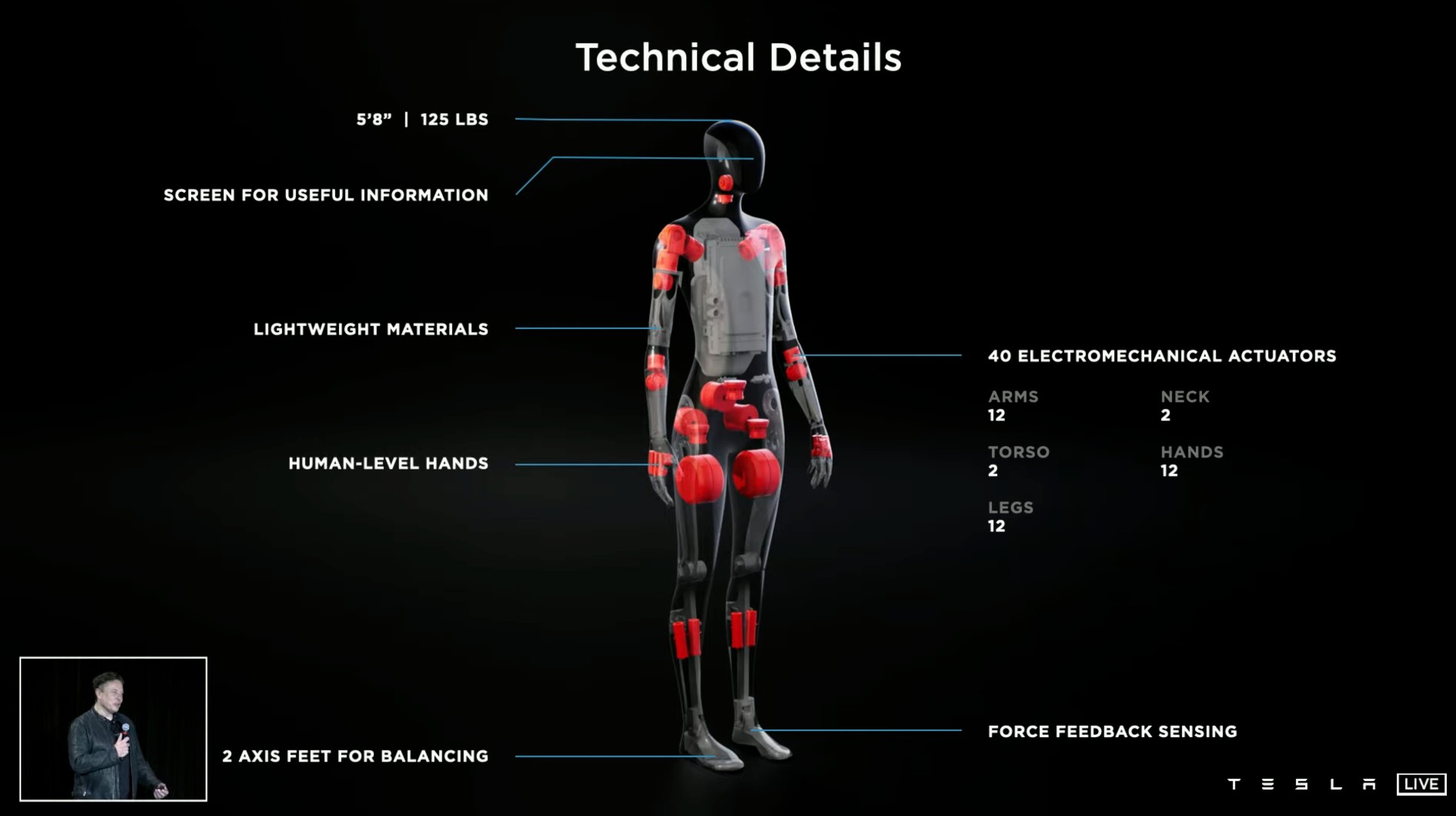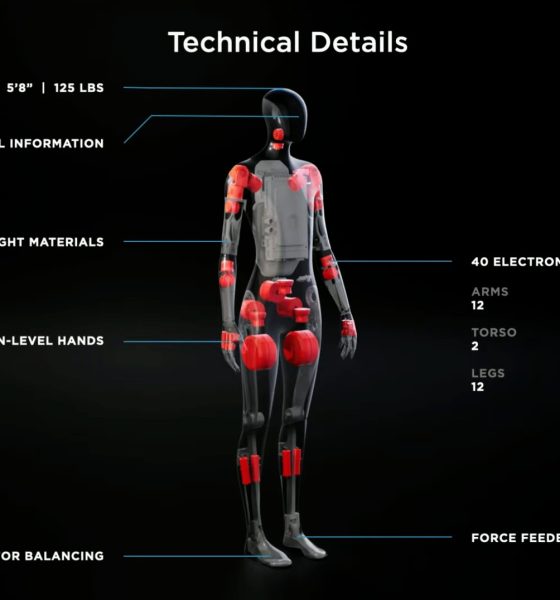Wedbush analyst Dan Ives maintained his optimistic outlook on Tesla (NASDAQ:TSLA) following the company’s recently-held AI Day recruitment event. In a note, Ives mentioned the potential of innovations such as Project Dojo, as well as the company’s focus on Full Self-Driving. He did, however, share some caution about Elon Musk’s “sci-fi” projects such as the Tesla Bot. Despite his reservations, however, Ives still maintained his “Outperform” rating for the company, as well as a $1,000 12-month price target.
Tesla’s AI Day was a recruitment event, and in this light, it was undoubtedly successful. With extremely detailed and technical discussions surrounding how FSD is being developed and trained, the event was a great showcase of the projects that the company is currently working on. It would not be surprising if Tesla received a good number of applications for its AI Team following the event.
Ives, for his part, was particularly impressed by Dojo, which is being created to process vast amounts of camera imaging data much faster than existing computer systems. With the newly-unveiled D1 chip, Tesla could vastly improve its AI performance, allowing the company to gain more control over its hardware and software operations down the road.
“The holy grail for Tesla is all about FSD and differentiating the company’s technology vs. increasing competition in the autonomous and self-driving space. In theory, the AI capabilities that Tesla is working on will enhance and improve its FSD with hopes that Dojo will be operational next year. To this point, with Tesla under major scrutiny for safety issues on FSD and a new US probe now underway, clearly Tesla recognizes there are deficiencies in its current process that must be significantly improved through real-time AI to reach the eventual aspirational goal of true FSD over the coming years,” Ives wrote.
The Wedbush analyst also shared some of his reservations about the Tesla Bot, which Ives describes as a “sci-fi project for Musk.” While the Tesla Bot has potential in the way that it could help perform repetitive and low-level tasks, Ives stated that such a project would likely agitate investors in the near term since the company is currently facing some challenges.
“The robots will use the same chips and sensors that Tesla’s cars use for self-driving features. Unfortunately, as we have seen with robotaxis and other future sci-fi projects for Musk, we view this Tesla Bot as an absolute head-scratcher that will further agitate investors at a time (when) the Street is showing growing concern around rising EV competition and safety issues for Tesla. While we appreciate Musk’s longer term technology vision, a Tesla Bot is not what investors want to see with instead much more focus on chips, FSD, and reaccelerating China EV demand in this key market at a critical juncture.
“In a nutshell, last night showcased the massive AI technology underway at Tesla and speaks to a company which is much more than a traditional auto company. That said, the Street wants Musk to focus on driving near-term battery technology enhancements, capacity buildout (in Berlin and Austin), and fending off rising EV competition from all angles globally and not humanoid robots. We continue to believe Tesla is further building out its technology stronghold on EVs, however focusing on course-correcting the current issues (China demand, safety issues, and chip shortages) is the key task at hand for Musk and the stock,” Ives wrote.
Disclaimer: I am long TSLA.
Don’t hesitate to contact us with news tips. Just send a message to tips@teslarati.com to give us a heads up.

Elon Musk
Elon Musk estimates Tesla Semi could reach Europe next year
“We’ve got the Tesla Semi coming out, the heavy truck, and that’ll be going to Europe hopefully next year,” Musk said.
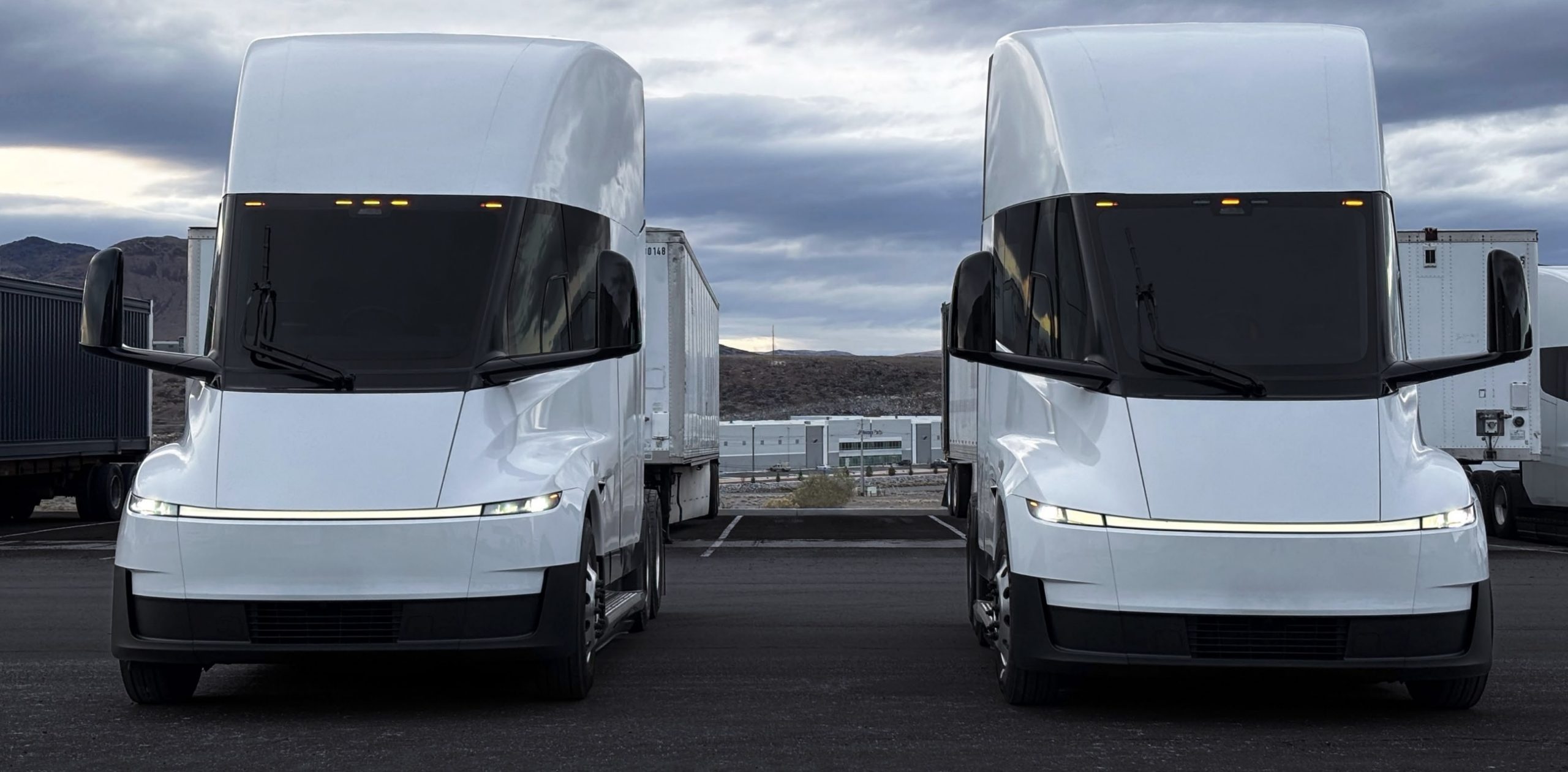
Tesla is preparing to expand its all-electric Semi truck program to Europe, with CEO Elon Musk indicating that the Class 8 vehicle could arrive in the region 2027.
Musk shared his update during an interview about Giga Berlin with plant manager André Thierig, which was posted on X by the official Tesla Manufacturing account.
“We’ve got the Tesla Semi coming out, the heavy truck, and that’ll be going to Europe hopefully next year,” he said.
Tesla has already begun limited production and customer deployments of the Tesla Semi in the United States, with the company working to scale output through the Semi factory near Giga Nevada. Considering Musk’s comments, it appears that a European rollout would be the next phase of the vehicle’s expansion beyond North America.
Musk’s use of the word “hopefully” leaves room for flexibility, but the remark signals that Europe is next in Tesla’s commercial expansion plans.
Musk has consistently argued that electrification should extend beyond passenger vehicles. During the same interview, he reiterated his view that “all ground transport should be electric,” adding that ships, and eventually aircraft, would follow.
The Semi plays a central role in that strategy. Heavy-duty freight remains one of the most emissions-intensive segments of road transport, and European regulators have increasingly pushed for lower-emission commercial fleets.
Tesla recently refreshed the Semi lineup on its official website, listing two variants: Standard and Long Range. The Standard trim offers up to 325 miles of range with an energy consumption rating of 1.7 kWh per mile, while the Long Range version provides up to 500 miles, which should be more than ample for European routes.
Elon Musk
Tesla Cybercab coming next to Giga Berlin, Optimus possibly after
“From a next major product standpoint, I think most likely is the Tesla Cybercab,” Musk said.
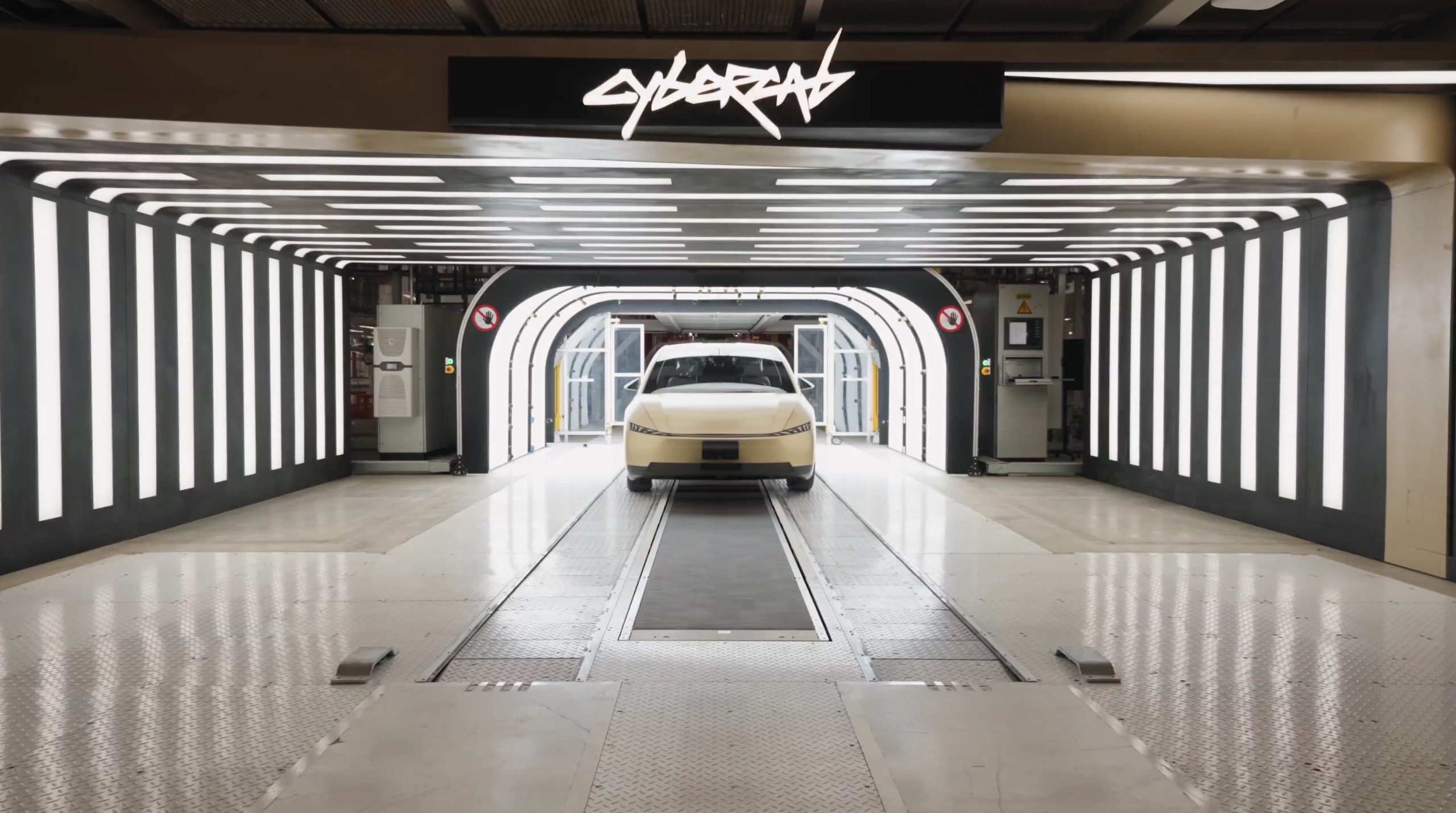
Tesla could add the Cybercab and Optimus humanoid robot to the production lineup at Giga Berlin, as per recent comments from CEO Elon Musk.
During a recent interview with Giga Berlin plant manager André Thierig, Musk identified the Cybercab as the most likely next major product for the German factory, with Optimus potentially following after.
“From a next major product standpoint, I think most likely is the Tesla Cybercab,” Musk said. He added that there are also “possibilities of Tesla Optimus” being produced in the facility.
Tesla has already begun production of the Cybercab in Giga Texas, with volume production expected to ramp this year. Based on Musk’s comments, it appears that if conditions align in Europe, Giga Berlin could eventually join that effort.
The CEO’s comments about Optimus coming to Gigafactory Berlin are quite unsurprising too considering that Musk has mentioned in the past that the humanoid robot will likely be Tesla’s highest volume product in the long run.
Giga Berlin will likely be able to produce mass volumes of Optimus, as the Model S and Model X lines being converted to an Optimus line in the Fremont Factory are already expected to produce 1 million units of the humanoid robot annually.
Apart from his comments about the Cybercab and Optimus, Elon Musk also confirmed that Giga Berlin has started ramping battery cell production and will continue expanding Model Y output, particularly as supervised Full Self-Driving (FSD) gains regulatory approvals in Europe.
Taken together, the remarks suggest Berlin’s role could evolve beyond vehicle assembly into a broader multi-product manufacturing hub, not just a regional Model Y plant.
Energy
Tesla Powerwall distribution expands in Australia
Inventory is expected to arrive in late February and official sales are expected to start mid-March 2026.
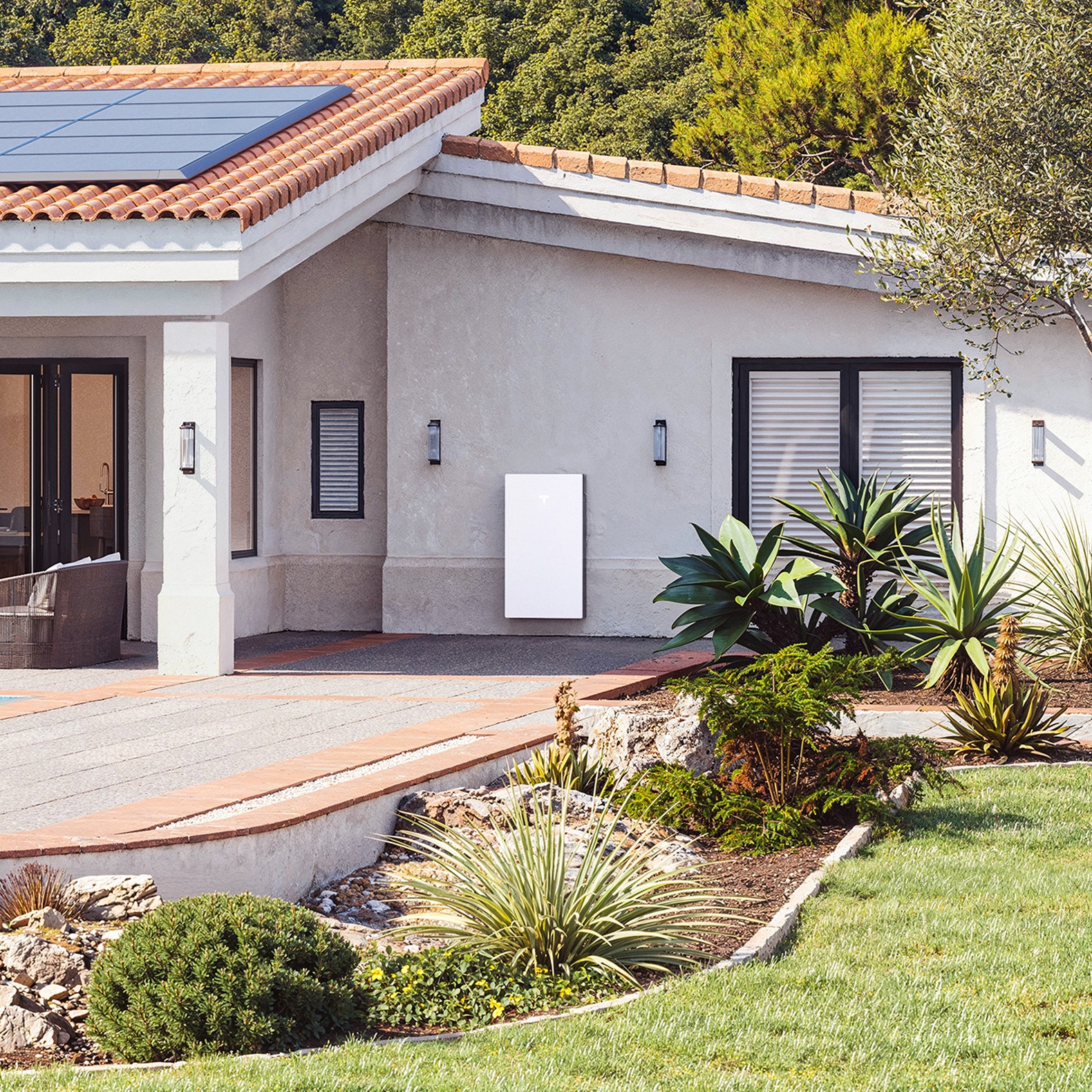
Supply Partners Group has secured a distribution agreement for the Tesla Powerwall in Australia, with inventory expected to arrive in late February and official sales beginning in mid-March 2026.
Under the new agreement, Supply Partners will distribute Tesla Powerwall units and related accessories across its national footprint, as noted in an ecogeneration report. The company said the addition strengthens its position as a distributor focused on premium, established brands.
“We are proud to officially welcome Tesla Powerwall into the Supply Partners portfolio,” Lliam Ricketts, Co-Founder and Director of Innovation at Supply Partners Group, stated.
“Tesla sets a high bar, and we’ve worked hard to earn the opportunity to represent a brand that customers actively ask for. This partnership reflects the strength of our logistics, technical services and customer experience, and it’s a win for installers who want premium options they can trust.”
Supply Partners noted that initial Tesla Powerwall stock will be warehoused locally before full commercial rollout in March. The distributor stated that the timing aligns with renewed growth momentum for the Powerwall, supported by competitive installer pricing, consumer rebates, and continued product and software updates.
“Powerwall is already a category-defining product, and what’s ahead makes it even more compelling,” Ricketts stated. “As pricing sharpens and capability expands, we see a clear runway for installers to confidently spec Powerwall for premium residential installs, backed by Supply Partners’ national distribution footprint and service model.”
Supply Partners noted that a joint go-to-market launch is planned, including Tesla-led training for its sales and technical teams to support installers during the home battery system’s domestic rollout.
